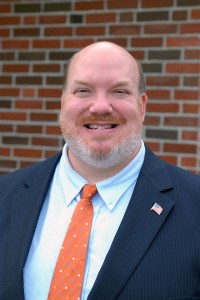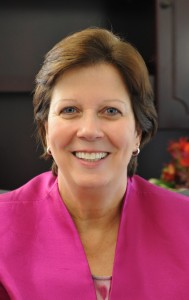BOSTON — Backers of a proposal to make pre-kindergarten programs available to all 3- and 4-years olds in the state regardless of family income said it would help narrow the academic achievement gap that exists among students from varying socio-economic backgrounds.
The bill, unveiled Tuesday, would allow school districts to develop universal pre-kindergarten programs and submit them for funding under the state’s Chapter 70 educational formula.
The programs would be phased in over five years, with priority given to school districts with the most children in need of access to early education.
Supporters of the measure pointed to statistics that show 39 percent of third-graders in Massachusetts are not reading at grade level but those with access to early education programs are far more likely to succeed in public school. They also said students from low-income families who participate in early education are 40 percent less likely to require special education services, 30 percent more likely to graduate from high school and twice as likely to go to college.
Sen. Sonia Chang-Diaz, D-Boston, of the 2nd Suffolk District, is the lead sponsor of the bill, one she believes would help tens of thousands of preschoolers if approved, including about 6,000 now on a waiting list for early education programs that are subsidized by the state.
Chang-Diaz said she could not provide an estimate of what the measure would cost or how it would be paid for but said studies have shown every dollar spent on pre-kindergarten programs “delivers a return that reaches from $7 to $17.”
The Massachusetts Budget and Policy Center estimated last year it would cost about $1.5 billion to cover the annual cost of expanding public schools to offer universal pre-kindergarten for 3- and 4-year-olds not currently receiving any public support for their early education.
The bill was unveiled on the day that Gov. Charlie Baker announced that the state faced a projected $765 million budget deficit for the fiscal year ending June 30. Baker, a Republican, has blamed the shortfall on excessive state spending.
Sen. Don Humason, Jr., R-Westfield, of the 2nd Hampden-Hampshire District, said yesterday that, while a universal pre-k program may be something to strive for, the timing for such an expensive endeavor is not now.
“When you’ve got a huge budget deficit, the last thing I’d think is prudent would be to roll out a new program, no matter how valuable that program may be,” he said. “The first thing we’re required to do is pay our bills and live within our means.”
Humason acknowledged the program’s supporters and what universal pre-k could mean for the Commonwealth, but reiterated that making sure the state’s finances are in order is job number one.
“Once (the deficit) is in line, like anything during the budget process, we have to determine where to spend our money and where our priorities are,” he said. “If the priority is to provide universal kindergarten, then we have to find a way to make it work.”
Rep. John Velis, D-Westfield, of the 4th Hampden District, said yestrday that in theory universal pre-kindergarten is great but has reservations about whether now is the time to implement it.
“We need to press pause on all of our spending right now and I’m sure that, ultimately we’d have some return on our investment, but we don’t have the money right now,” said Velis of the bill. “A lot of these plans sound good in theory and our constituents like them, but we’ve got close to a $765 million budget deficit and there’s just no money.”
Velis advocates for the “slashing” of state initiatives that don’t comply with the state’s requirement that it balance the budget.
While the city’s legislative delegation seem to be in agreement that now isn’t the time for universal pre-k, city and regional educators not tasked with figuring out how to pay for the costly measure are all in.
“We have been talking about this very thing in Westfield. I’ve spoken with the Mayor about it,” said Westfield Superintendent Dr. Suzanne Scallion yesterday. “The next step would be to open a second pre-k site and of course we already have a phenomenal program at Fort Meadow, but we need more.”
Scallion said that the Commonwealth’s consideration of universal pre-k is “very encouraging, necessary and exciting.”
As to how a $1.5 billion undertaking such as universal pre-k would get paid for, Scallion admitted that that is not her area of expertise.
“I can never make complete sense of the budget because it is such a moving target, with anticipated revenues and taxes. I’m going to leave that to the budget experts,” she said. “What I know is that we need to begin the commitment. We can’t do it all at once anyway, but let’s do it incrementally and by need, by community.”
Scallion said that the impact of pre-school, even to the most hardened cynic, is undeniable.
“What we know is that good, strong, developmentally appropriate pre-school absolutely matters in the lives of our kids,” said Scallion. “There was a time when there were more kids at home, there was more play at home but it is just not the same world and we’ve got to adapt our schools to meet the needs of our society.”
Clare Higgins is the executive director for Community Action!, a western Mass. organization which provides early childhood services and maintains a Westfield branch on Southampton Road, where it has administered the Head Start program since 2012.
The former mayor of Northampton, Higgins said she hasn’t had a chance to read the bill fully, but said that she is generally supportive of universal programs.
“There is great evidence that high quality early childhood education can make a difference in a children’s outcomes,” she said. “I think the devil is in the details and I think the good thing about this bill is that it proposes a mixed system, where some kids may be in the public schools, while some may be in the private or non-profit.”
Higgins said that the program will benefit working parents.
“They need more than a school-length day for young children,” she said. “3- and 4-year olds are now in full-day, full-year early education settings in the private sector, paid for by the state through contracts or by their parents and we should figure out a way to support that.”
“I think it is important for kids to have consistency in their setting. I don’t think its great for kids to go to a pre-k program in a school for half a day and then be bused somewhere else,” Higgins said. “They need to have a consistent setting with reliable, dependable, skilled educators that are with them all day.”





